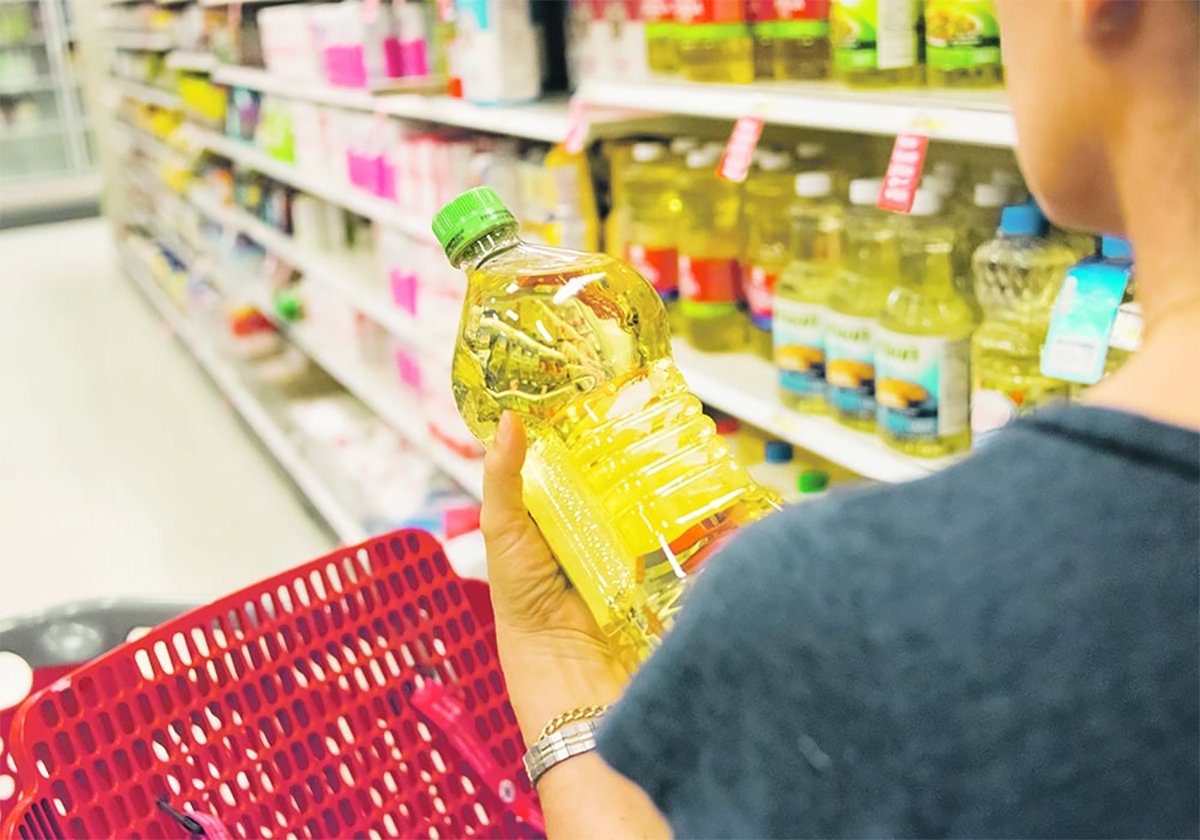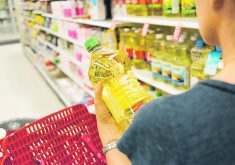Tide shifting on GM debate?
Major Asian countries are joining Europe in labeling genetically modified foods.
Archer Daniels Midland, the self-styled Supermarket to the World, last week announced it wants its suppliers to segregate genetically modified, or GM, crops of corn and soybeans.
How is all this going to affect Canadian canola? It’s not, at least in the immediate future.
Dale Adolphe, head of the Canola Council of Canada, said last week the Japanese labeling rules do not apply to processed vegetable oil.
Read Also

Vegetable oil stocks are expected to tighten this year
Global vegetable oil stocks are forecast to tighten in the 2025-26 crop year, this should bode well for canola demand.
That is because food products, such as vegetable oil and alcohol, in which DNA or protein resulting from gene alteration cannot be detected using current technologies, are exempt from the labeling requirement. Animal feed is also exempt.
But soybeans are caught because they are used to make tofu, miso and other protein foods.
Adolphe said that judging by the letter of the regulations, canola’s situation is unchanged.
But he recognizes that the bigger impact would be how Japanese consumers react to the labeling rules and, perhaps even more significantly, how food processors think consumers will react and how much attention they pay to vocal anti-GM groups.
Only time will tell which direction the trend takes, Adolphe said.
But some big players right here in North America are already giving a good signal what the future holds.
ADM wants its suppliers to segregate GM and non-GM crops and baby food maker Gerber won’t take GM crops from its suppliers.
Both say they believe in the safety of GM foods, but to be able to serve all their customers, including those concerned about GM foods, they have acted.
Adolphe said the actions of a few companies could snowball, causing most food processors and retailers to create the same rules. That’s what happened in Europe.
“The million dollar question everyone is asking is will Japan go that direction? Will it mean there will be an attempt to segregate throughout the production, handling and processing chain?” he asked.
But how successful would segregation be?
Canada, with its history of segregating many grades of grain and experience in handling identity-preserved varieties, might have an advantage over the United States in this.
But Adolphe noted that in most of these existing situations, there is room for give and take. He thinks no system could affordably and consistently produce true “GM-free” products.
If segregation is the wave of the future, there must be international agreement on tolerance levels.
And given the widely divergent views on GM crops, such an agreement won’t be easy to forge.
















